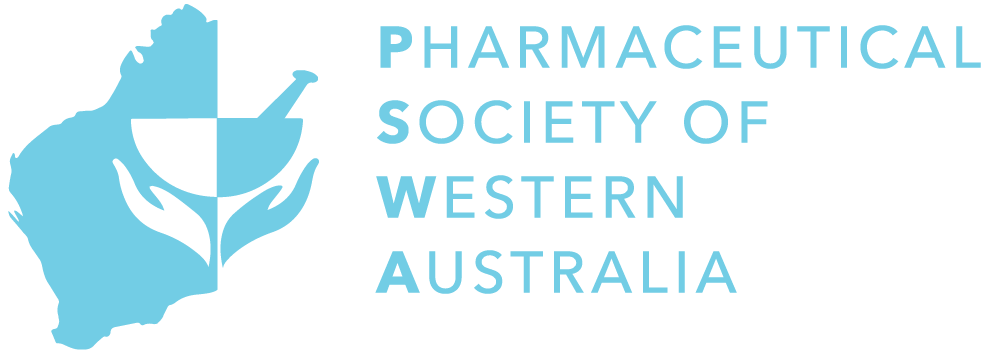Alfred Edwin Webster
In this day of pharmacy regulation, it is hard to imagine a world where anyone could call themselves a chemist and sell poisons, dispense medicines and perform surgery. Yet in WA prior to 1894 anyone could use the title and set up a chemist shop. Many were quite highly trained either learning their craft by being “apprenticed” to a doctor for five years, or four or five years as an assistant to a chemist, and many were not.
Doctors of the time gave advice for free and charged for the medicines they recommended. Most chemists openly treated patients and didn’t charge for advice. They filled and extracted teeth and performed minor surgery. Many patent medicines were available often with very inflated claims about their curative properties, and quackery was widespread.
In 1892, Richard Birch organised a meeting of Perth and Fremantle chemists at the Shamrock Hotel, Hay St, Perth to discuss the need to protect their interests against the increasingly prevalent number of quacks and charlatans popping up in WA. A total of ten chemists attended and it was resolved that “all the gentlemen now present form themselves into a society to be called “The Pharmaceutical Society of Western Australia” (PSWA), with the power to add to their number. A fee of one guinea paid each year in advance was decided upon.
The next couple of years were very productive with the introduction of the Pharmacy Act based very closely on legislation of the Pharmaceutical Society of Great Britain. However, although it was adopted by the Society, it took some time to pass through government. Once passed, the Pharmacy Council was appointed by the government after elections were held by members of the Society.
Another significant event was the appointment of Alfred Edwin Webster as Registrar in 1893. He replaced Dr James Laughton a dentist who practised at Birch and Webster’s pharmacy (Medical Hall) in High St Fremantle. Alfred Webster was highly influential in the formative years of the Society and the Pharmacy Council. He is honoured through the Webster Gold Medal which is awarded for exceptional academic performance to a pharmacy student at Curtin University if particular criteria are met.
PSWA is lucky to have preserved some of the documents and letters of the time. These give a small window into the day-to-day work carried out by Alfred Webster in his role.
With his job came the mundane daily tasks such as maintaining the register of members and ensuring subscriptions were up to date. However, from the mail received by Mr Webster it would appear that he had many complaints and law breakers to deal with.
On 29th May 1897 he received a letter and newspaper clippings from George Armstrong who operated his chemist shop on the corner of Hay and Barrack Streets. The letter complained of several unregistered men conducting themselves as chemists including one claiming to be a manufacturing chemist in Perth and Melbourne, and advertising a number of propriety preparations including Vitality Pills and Dr Boxwell’s Female Pills. George Armstrong calls for swift action to be taken under the law to put a stop to the large number of quacks now flourishing in the colony. There are a number of similar letters in the collection which run upon the same lines.
Another letter from F.H. Faulding & Co dated 27th Oct 1897 makes for interesting reading and seems to indicate that a confidence has been broken with regards to unregistered chemists. Faulding states that they can hardly be expected to inform on businesses that are their paying clients. The final paragraph states that one of the shops established “under the very nose of the society has now been closed”. Reading between the lines it would seem there was a less than cordial relationship between the two parties during the early years of the relationship.
Policing the sale of poisons was a major role that the registrar undertook. Letters show that Mr Webster worked closely with the police in prosecuting persons selling opium, a drug that like today, was abused by addicts. Not only was it sold illegally but also sold inappropriately by holders of poisons licences issued under the Pharmacy Act. Poisons licences were often issued to merchants and unqualified persons particularly in country towns.
A letter dated 14th Feb 1898 demonstrates the angst this could cause to qualified chemists who were in direct competition to these unqualified persons. A chemist wrote that he invested a lot of money to procure opium for his registered business, and that he used to sell twenty times more prior to the society granting a poisons licence to an unqualified Chinese trader. He goes on to claim that opium sales were seven eights of his business, and that the licence held by the Chinese trader should be withdrawn. It would seem that the pharmacist was perhaps selling opium to all and sundry, as was the Chinese trader. In a second letter written on the same day the pharmacist says unless the license is withdrawn, he will be forced to shut shop and return to the city.
Another interesting letter was from Radcliffe and Tilly dated 5th Oct 1897. It advises Mr Webster that Mr Tilly has examined Mr Clune and Mr George in Botany and that Mr Clune has passed whilst Mr George had failed. Mr George must have knuckled down and eventually passed his exams as he operated in Perth successfully for many years.
Pharmacy history may seem boring and unimportant to many pharmacists and students however, without men such as Mr Webster the profession would have been significantly poorer and would not have become the much-admired profession of today.
This article was kindly written by WA Pharmacy Historian Andrew Alsop
